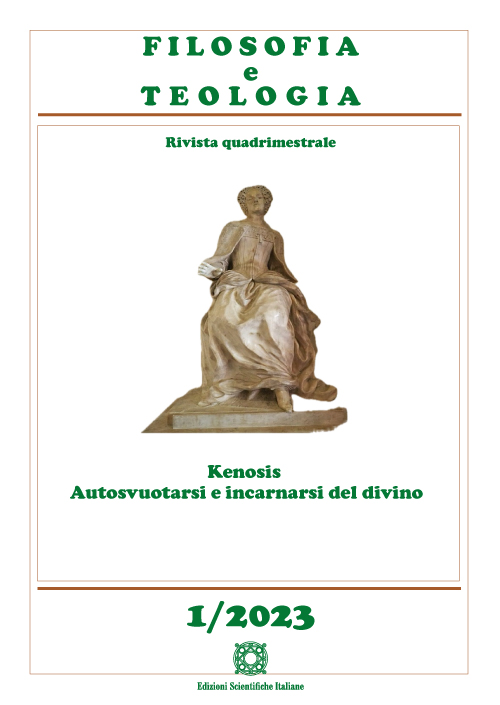Filosofia e Teologia XXXVII, 1 (2023), Kenosis. Autosvuotarsi e incarnarsi del divino, pp. 9-26
L’articolo analizza alcune fonti ebraiche in cui compare la kenosis non tanto del divino quanto del tohu va-vohu, ovvero dell’indeterminazione, mancanza di forma e di luce, presente in Dio, nel mondo e nell’uomo, e la sua sostituzione con chiare determinazioni aventi un significato etico, annunciatrici del messianico. Ma, finché il Regno non avrà luogo sulla terra, confluendo questa in Dio, persiste l’opposizione in Dio, nel mondo e nell’uomo del tohu va-vohu e del bene.
Parole chiave: Kenosis, tohu va-vohu, indeterminazione, mancanza di forma, mancanza di luce
The article analyzes some sources of Judaism where the kenosis appears: in them, kenosis refers not so much to the divine as to the tohu va-vohu, i.e. the shapelessness and absence of light, that is immanent in God, the world, and man, and its substitution with clear ethical concepts, announcers of the Messianic. But, until the Kingdom is actual on earth, and the earth flows into God, an opposition remains in God, the world, and man between the tohu va-tohu and the good.
Keywords: Kenosis, tohu va-vohu, indeterminacy, lack of form, lack of light

